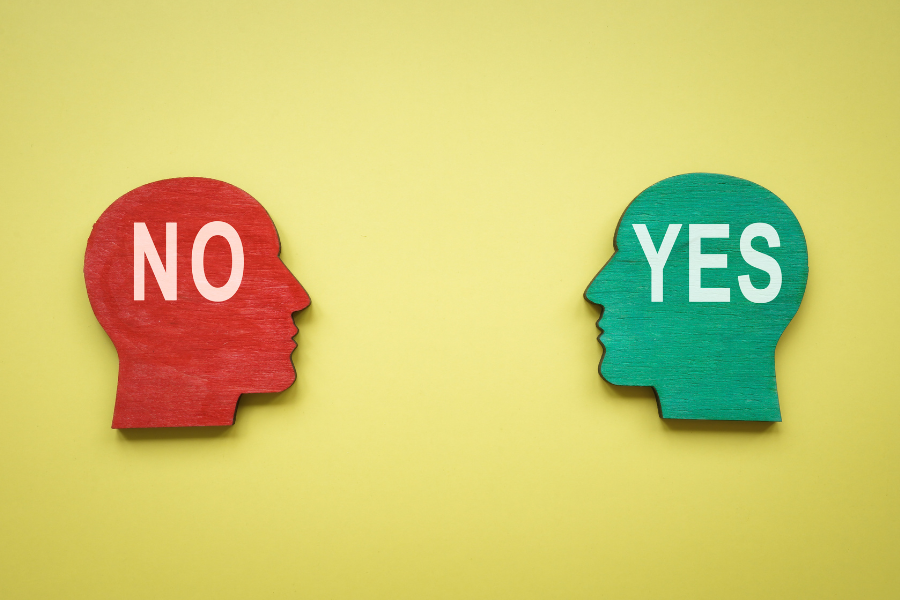Realizing the end of a friendship can be challenging, marked by a gradual shift in dynamics, strained conversations, unreturned texts, and a growing sense of distance. The waning bond becomes evident as inside jokes no longer evoke the same joy and shared experiences lose their luster. This realization often arises from subtle cues rather than explicit events, leading to signs friendship is over.

Confronting this truth initiates a mourning process for what was once there, signaling the need to adapt to a new chapter without that person in the same capacity. Accepting this change, though painful, can pave the way for personal growth. It’s also an opportunity to form new connections and experiences. For instance, you can boost your confidence and learn more about friendships.
Why Do Friendship Breakups Hurt?

Friendships, with their intricate dynamics, can end due to various influential factors that significantly impact your well-being. Research consistently highlights how the quality of these connections affects stress levels, physical health, and coping mechanisms. While supportive friendships positively influence overall well-being, relationships marked by ups and downs can heighten stress and negatively affect health.
The enduring history of a friendship might create a sense of obligation, leading individuals to persist in connections that have lost mutual understanding or comfort, often driven by a sense of duty or history.
Moreover, the absence of a clear-cut protocol for terminating friendships can introduce complexity into the process. Friendships, unlike romantic relationships, lack defined closure expectations. They often persist despite deterioration as individuals may not anticipate or comprehend the end until it becomes undeniable. This lack of explicit guidance regarding friendship breakups can result in protracted associations that no longer enrich your life positively.
Living Life Unfiltered: 8 Things I Don’t Give a Crap About
8 Signs Friendship Is Over
Should you find yourself unsure about concluding a friendship, take a moment to reflect on whether you’ve observed any of these indicative signs:
Your values are too different

As you and your friend navigate life’s twists and turns, you might find your once-aligned values starting to diverge. Maybe your focus on straightforward honesty clashes with your friend’s preference for a more laid-back and adaptable approach. These variations in fundamental beliefs can trigger conflicts that nibble away at the trust that once formed the bedrock of your friendship. It’s akin to constructing a bridge between your ideals, only to face hurdles due to the mismatch in your foundational beliefs.
You’re always the first one to reach out

When you’re carrying most of the weight in a friendship, an unsettling imbalance emerges. You’re the one constantly reaching out, trying to sustain the connection, but without the same effort returned, it’s like performing a duet solo. This one-sidedness sparks feelings of being undervalued and unappreciated, despite your consistent attempts to stay close. As the unequal effort wears on, disappointment and frustration grow.
When boundaries are often crossed

Friendship breakups often happen because of a lack of respect for personal boundaries, and it shows up in all sorts of ways. When you tell your friend about a boundary or something you prefer, it’s super important to notice how they react. Do they give your boundaries the thumbs up, or do they keep challenging or straight-up ignoring them? Friendships sometimes do this boundary-pushing thing in various sneaky ways, like expecting an invite to every single event, getting all possessive or jealous when you hang out with other pals, or bugging you to do stuff you’ve already said a firm “no” to, like hitting the town late or drinking.
You feel drained after hanging out with them

When you’re constantly feeling zapped after chilling with a friend, it’s essential to step back and figure out what’s causing this fatigue. It could be their non-stop grumbling, a constant need for attention, or the fact that the friendship feels more one-sided. Taking a moment to mull over these emotions can offer valuable insights into the friendship’s inner workings and whether this chronic fatigue is a result of an unbalanced or unhealthy relationship.
The friendship is too competitive

Constantly feeling like you’re in this low-key competition with your friend can really affect the vibe between you both. If you notice their actions are more about shining brighter than genuinely supporting each other, it can create an atmosphere where it feels like camaraderie takes a backseat to rivalry. This kind of unhealthy competition not only chips away at trust but also stifles the natural connection and mutual support between friends, setting the stage for potential breakdown in the friendship. It’s really challenging when the essence of friendship gets clouded by a sense of competition.
They’re only there when they need you

One of the signs friendship is over is when the friendship feels like it’s all take and no give. If your friend’s mostly in it for what they want, it’s a pretty big hint of an imbalance. True friendships run on a fair share, where both sides are there for each other through the ups and downs. If you’re often playing Mr. or Ms. Support for your friend’s stuff without getting the same in return, it could mean there’s a lack of that crucial mutual support, maybe signaling a fading link in the friendship.
Top 7 Self-Compassion Practices You Can Try
You feel uncomfortable being yourself when in their presence

Good friendships are meant to leave you feeling supported, valued, and free to be yourself. But if every time you walk away from hanging with your friend, you’re left feeling unsure, judged, or just not good enough, it’s a clear signal that the friendship might not be boosting you up. It’s a good moment to figure out what’s triggering this change in how you see yourself and to take a closer look at how things are playing out in the friendship. Time to weigh if it’s a healthy, uplifting connection or if it might be time to rethink its spot in your life.
They’re too occupied for you but frequently socialize with others

Witnessing a friend frequently socializing with others while seldom finding time for you can be a tough pill to swallow. It might suggest they don’t see the friendship in the same light or have new priorities that take precedence over staying connected with you. This conduct could signify a change in the friendship’s dynamics, potentially showing a decrease in their eagerness or investment in keeping the bond vibrant and meaningful.
Dealing With Friendship Breakups
Ending a friendship isn’t a one-size-fits-all situation. A considerate message can be a suitable way to close things off if you’re not trying to repair the relationship. Focus on facts, avoid blame games, and explain calmly what caused the friendship’s decline, steering clear of personalizing things. It’s crucial not to let emotions guide your actions and rise above the impulse for retaliation while expressing gratitude and well-wishes can offer closure and a sense of moving forward.
Choosing to let go helps avoid uncomfortable interactions, and reclaim your time and emotional energy from relationships that no longer benefit your life. Prioritizing personal growth and well-being over maintaining relationships that no longer contribute positively is a significant part of this closure.
If these signs friendship is over helped your situation, make sure to take a look at these posts that may also resonate with you:
- When Friendships Change-6 Reasons Why You Lose Friends
- 11 Peculiar Reasons Why People Don’t Like You (and one reason to not care)
- The Truth About Friendship – 12 Things You Need to Know
- 13 Signs of Disrespect in a Relationship You Better Not Ignore











Leave a Reply